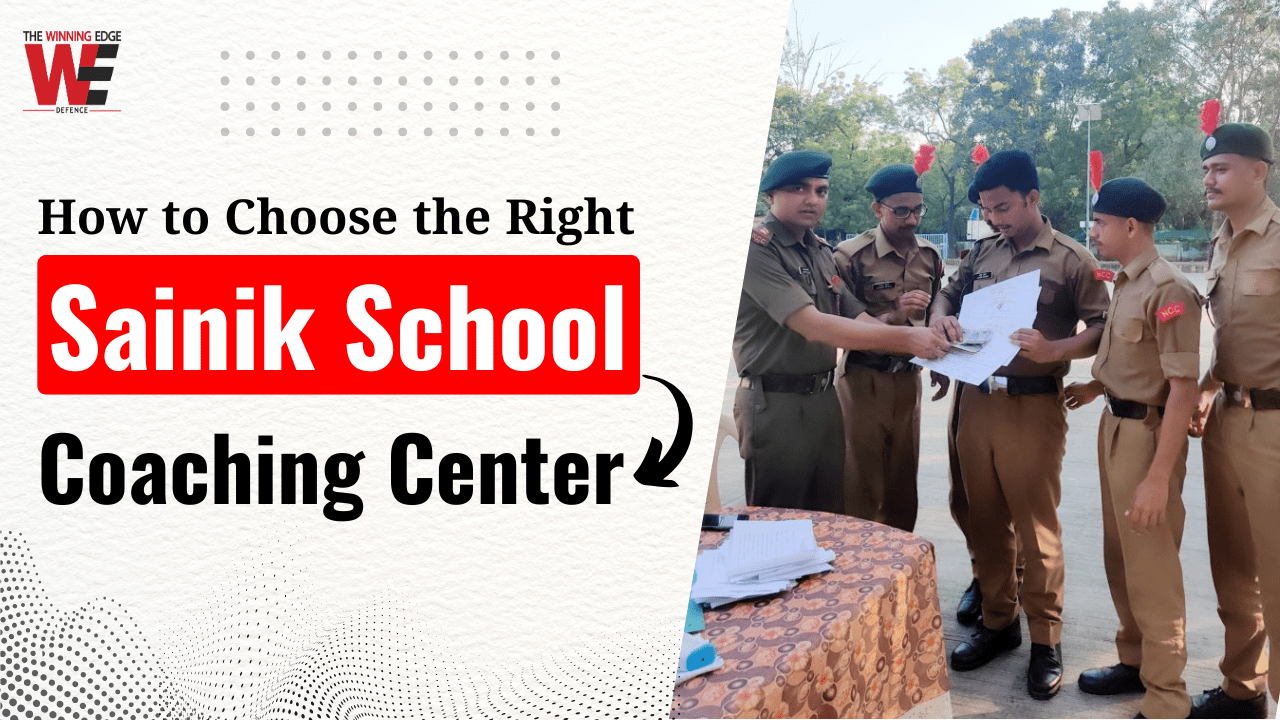How to Score Good in Sainik School Entrance Exam: Effective Tips and Strategies

As parents, you play a vital role in shaping your child’s journey towards success. The All India Sainik School Entrance Exam (AISSEE), conducted for admissions to classes 6 and 9, evaluates a student’s aptitude, knowledge, and intelligence. This isn’t just another exam; it’s a gateway to discipline, leadership, and a bright future. So, how can you help your child ace this challenge? Let’s dive into the strategies and tips that’ll make all the difference.
Understanding the Exam Pattern and Syllabus
First things first—get familiar with the AISSEE exam structure. This isn’t just about solving random questions; understanding the layout is key.
Sainik School Exam Overview | |
Exam Pattern (Class 6) | – Mathematics: 50 questions (150 marks) |
– Language: 25 questions (50 marks) | |
– General Knowledge: 25 questions (50 marks) | |
– Intelligence: 25 questions (50 marks) | |
Exam Pattern (Class 9) | – Mathematics: 50 questions (200 marks) |
– Science: 25 questions (50 marks) | |
– English: 25 questions (50 marks) | |
– Social Science: 25 questions (50 marks) | |
– Intelligence: 25 questions (50 marks) | |
The exam focuses on testing your child’s grip on Mathematics, General Knowledge, Language, and Intelligence. Each section has its own weightage, so knowing what’s important can help prioritize preparation.
Essential Tips for Each Subject
Every subject needs a unique approach. Let’s break it down:
- Mathematics: This section carries the most marks. Focus on:
- Mastering basic arithmetic like fractions, decimals, and percentages.
- Practicing geometry and algebra.
- Solving past papers to identify frequently asked questions.
- General Knowledge: Encourage your child to:
- Read newspapers daily.
- Stay updated on Indian history, geography, and current events.
- Language: It’s not just about grammar, Focus on:
- Improving vocabulary.
- Practicing comprehension passages regularly.
- Intelligence: Logical reasoning is a game-changer. Tips:
- Solve puzzles and riddles together as a family.
- Practice coding-decoding, series completion, and analogy questions.
Creating a Study Plan
Now, let’s talk about planning—because clearing this exam without proper plan is not easy. Here’s how you can do it:
- Morning Routine: Start with the toughest subject. Fresh minds crack tough problems better.
- Afternoon Drills: Dedicate this time to lighter topics like General Knowledge and Language.
- Evening Practice: Mock tests, sample papers, and revisions.
Don’t overburden your child—keep breaks between sessions. Honestly, a stressed-out brain is as good as no brain.
The Importance of Mock Tests and Sample Papers
Mock tests are your child’s best friend—seriously. They’re not just practice but a sneak peek into the real exam.
- Builds Confidence: The more familiar your child is with the format, the less nervous they’ll be.
- Identifies Weak Areas: These tests highlight what’s working and what isn’t.
- Improves Time Management: A well-timed mock test session can help your child avoid last-minute panic during the actual exam.
Encourage your child to treat every mock test like the final one. Celebrate small victories—even one extra mark is progress.
Click here to download Sainik School Mock Tests Paper
Common Mistakes to Avoid
Here’s the thing even the smartest kids can slip up. Help your child steer clear of these blunders:
- Skipping Revision: Practicing without revising is like pouring water into a leaking bucket.
- Ignoring Weak Areas: It’s tempting to focus on strengths, but weaknesses need attention too.
- Neglecting Time Management: Spending too much time on one question can be disastrous.
- Not Reading Instructions: Marks are often lost due to carelessness, not ignorance.
Each of these mistakes can be avoided with proper guidance—and that’s where you as a parent come in.
Conclusion
To sum it up, the key to cracking the Sainik School Entrance Exam lies in a balanced mix of preparation, practice, and perseverance. Understanding the exam pattern, creating a solid study plan, and consistently practicing mock tests can make a huge difference. But more importantly, your support as a parent can be the defining factor in your child’s success.
So, start today. Sit with your child, map out a plan, and motivate them to put in their best effort. Remember, this isn’t just about acing an exam; it’s about setting the foundation for a brighter future. Let’s get started on this journey together—your child’s dreams are worth it.
FAQ: How to Score Good in Sainik School Entrance Exam
1. What is the Sainik School Entrance Exam (AISSEE)?
The AISSEE is a national-level entrance test conducted for admissions to Sainik Schools for students seeking admission in classes 6 and 9. It evaluates a student’s proficiency in Mathematics, General Knowledge, Language, and Intelligence.
2. How should I help my child prepare for the Sainik School Entrance Exam?
Start by understanding the syllabus and exam pattern. Create a balanced study plan focusing on Mathematics, General Knowledge, Language, and Intelligence. Practice with mock tests and sample papers regularly.
3. Why are mock tests important for AISSEE preparation?
Mock tests help in:
- Building confidence.
- Identifying strengths and weaknesses.
- Improving time management during the actual exam.
4. How can my child improve in the General Knowledge section?
Encourage daily newspaper reading and staying updated on current affairs, history, and geography. Using quiz apps or books specifically designed for GK can also help.
5. How do I help my child develop logical reasoning skills for the Intelligence section?
Introduce puzzles, riddles, and logical reasoning practice books. Activities like solving Sudoku or playing logic-based games can be fun yet effective.
6. How can we avoid common preparation mistakes?
Ensure your child:
- Revises regularly instead of last-minute cramming.
- Addresses weak areas instead of focusing only on strengths.
- Practices time management to avoid spending too much time on one question.
7. Are there specific resources or books recommended for AISSEE preparation?
Yes, refer to NCERT books for core subjects and consider AISSEE-specific preparation books for both classes 6 and 9. Look for guides with sample papers and previous year’s question papers.
8. How important is parental support during preparation?
Parental encouragement and guidance can significantly boost a child’s confidence and motivation. Regularly check on their progress, celebrate small wins, and ensure they maintain a healthy study-life balance.
Recent Posts
- How to Score Good in Sainik School Entrance Exam: Effective Tips and Strategies
- How to Choose the Right Sainik School Coaching Center
- Best Navodaya Vidyalaya Coaching in Dehradun – WEDA Career
- Comparing RIMC and Sainik Schools: Which One’s Right for You
- Admission for girls in Sainik Schools in Class 6th
Recent Comments
Categories
- Navodaya Vidyalaya (1)
- RIMC (7)
- Sainik School (5)
- Uncategorized (3)
Latest Posts

How to Score Good in Sainik School Entra 29/01/2025

How to Choose the Right Sainik School Co 20/01/2025

Best Navodaya Vidyalaya Coaching in Dehr 13/01/2025
Archives
Tags
Calendar
| M | T | W | T | F | S | S |
|---|---|---|---|---|---|---|
| 1 | 2 | |||||
| 3 | 4 | 5 | 6 | 7 | 8 | 9 |
| 10 | 11 | 12 | 13 | 14 | 15 | 16 |
| 17 | 18 | 19 | 20 | 21 | 22 | 23 |
| 24 | 25 | 26 | 27 | 28 | ||

Recent Comments